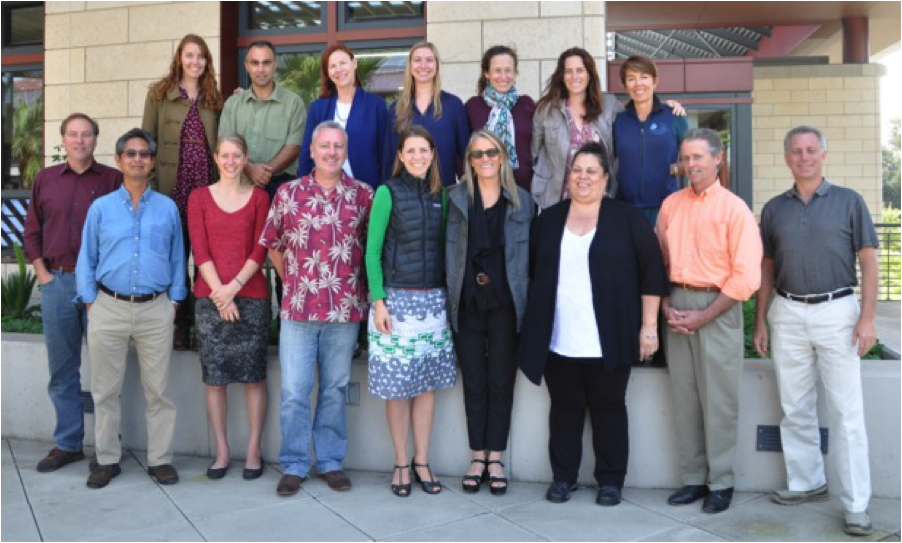
Palo Alto, CA— Over the course of two days in October, the Ocean Tipping Points Project team convened the Expert Management Advisory Group at Stanford University to elicit guidance and feedback on the form and function of the products and information the team plans to produce so that our results are useful in a variety of management contexts.
The meeting was a chance for the Ocean Tipping Points team to provide an overview of the project’s strategies and inspirations, and discuss future directions with the Advisory Group. The group also received updates on the two case study regions—Haida Gwaii, British Columbia and Hawai‘i. The importance of combining strong natural science and social science data was discussed as a way to enhance the accuracy and predictability of the tipping points that lead to regime shifts in these regions.
In this light, several members of the group highlighted that tipping points science complements indigenous ways of knowing, and discussed how it could act as a translational bridge between indigenous communities and government decisionmakers in British Columbia and beyond.

Advisory Group members agreed that starting at smaller regional scales provides a strong foundation for incorporating tipping points science into broader management by incorporating stakeholder buy-in from the bottom up. They also emphasized the importance of collecting empirical data that clearly shows how tipping points lead to regime changes as key to gaining managers’ support.
Advisory Group members helped develop a list of effective scientific ‘products’ (see text box), and provided ideas for new or modified resources. All members emphasized the importance of considering how to communicate tipping points science to different audiences using clear visuals, telling astory through narratives, and minimizing jargon.
The vast amount and diversity of experience embodied by the participants was inspiring, as was the continued support and commitment to the project expressed by Advisory Group members at the end of Day 2. As Phase II of the Ocean Tipping Points project unfolds, the information gathered at this meeting will inform much of the research, communication and outreach to come.


 The Stanford Legacy is a 40-foot, 4,200-pound totem pole that was installed May 6 in front of the Law School. The pole was designed in the traditional Haida style by the Canadian First People artist Don Yeomans. It is carved out of a roughly 400-year-old Western red cedar.
The Stanford Legacy is a 40-foot, 4,200-pound totem pole that was installed May 6 in front of the Law School. The pole was designed in the traditional Haida style by the Canadian First People artist Don Yeomans. It is carved out of a roughly 400-year-old Western red cedar.